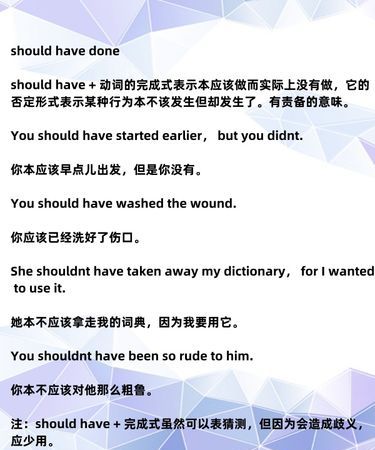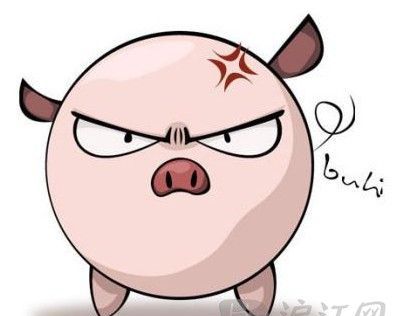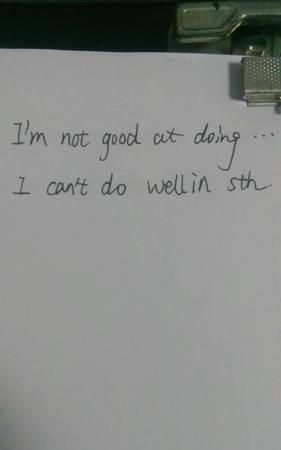本文目录
对某事生气用英语怎么说
be angry about。。 为某事生气
be angry with sb..对某人生气

生气英文短句朋友圈
1.关于生气的英语词组比如beangrywithbemadatbeannoyed还有.多想几
关于生气:1.make sb angry 使某人生气例:他的粗鲁让我生气.His rudeness made me really angry.2.be angry over sth 因某事而生气例:别为这些琐事生气.Don't be angry over such trivial matters.3.get angry with; get annoyed with 对..(人)生气 4.be enraged 使动怒,使气愤He was enraged at the waste.他觉得这样荼毒生灵实在令人气愤.He was enraged that he was shut out.他对被拒于门外一事极为愤怒.He was enraged to hear the news.他听到这消息而发怒.关于吵架:1.quarrel with sb 和某人吵架我理论,而不是和他吵架.I reasoned rather than quarreled with him.2.have a row吵架He have a row with his wife and just walk out on her他和妻子吵架后就把她抛弃了。
2.用英语骂人的句子有
1. stop complaining! 别发牢骚! 2. you make me sick! 你真让我恶心! 3. what's wrong with you? 你怎麽回事? 4. you shouldn't have done that! 你真不应该那样做! 5. you're a jerk! 你是个废物/混球! 6. don't talk to me like that! 别那样和我说话! 7. who do you think you are? 你以为你是谁? 8. what's your problem? 你怎麽回事啊? 9. i hate you! 我讨厌你 ! 10. i don't want to see your face! 我不愿再见到你! 11. you're crazy! 你疯了! 12. are you insane/crazy/out of your mind? 你疯了吗?(美国人绝对常用!) 13. don't bother me. 别烦我。
14. knock it off. 少来这一套。 15. get out of my face. 从我面前消失! 16. leave me alone. 走开。
17. get lost .滚开! 18. take a hike! 哪儿凉快哪儿歇著去吧。 19. you piss me off. 你气死我了。
20. it's none of your business. 关你屁事! 21. what's the meaning of this? 这是什麽意思? 22. how dare you! 你敢! 23. cut it out. 省省吧。 24. you stupid jerk! 你这蠢猪! 25. you have a lot of nerve. 脸皮真厚。
26. i'm fed up. 我厌倦了。 27. i can't take it anymore. 我受不了了!(李阳老师常用) 28. i've had enough of your garbage. 我听腻了你的废话。
29. shut up! 闭嘴! 30. what do you want? 你想怎麽样? 31. do you know what time it is? 你知道现在都几点吗? 32. what were you thinking? 你脑子进水啊? 33. how can you say that? 你怎麽可以这样说? 34. who says? 谁说的? 35. that's what you think! 那才是你脑子里想的! 36. don't look at me like that. 别那样看著我。 37. what did you say? 你说什麽? 38. you are out of your mind. 你脑子有毛病! 39. you make me so mad.你气死我了啦。
40. drop dead. 去死吧! 41. i don\'t give a . 我才不管(理都不理)呢。 42. don't give me your ****. 别跟我胡扯。
43. don't give me your excuses/ no more excuses. 别找借口。 44. you're a pain in the ass. 你这讨厌鬼。
45. you're an asshole. 你这缺德鬼。 46. you bastard! 你这杂种! 47. get over yourself. 别自以为是。
48. you're nothing to me. 你对我什麽都不是。 49. it's not my fault. 不是我的错。
50. you look guilty. 你看上去心虚。 51. i can't help it. 我没办法。
52. that's your problem. 那是你的问题。 53. i don't want to hear it. 我不想听! 54. get off my back. 少跟我罗嗦。
55. give me a break. 饶了我吧。 56. who do you think you're talking to? 你以为你在跟谁说话? 57. look at this mess! 看看这烂摊子! 58. you' re so careless. 你真粗心。
59. why on earth didn't you tell me the truth? 你到底为什麽不跟我说实话? 60. i'm about to explode! 我肺都快要气炸了! 61. what a stupid idiot! 真是白痴一个! 62. i'm not going to put up with this! 我再也受不了啦! 63. i never want to see your face again! 我再也不要见到你! 64. that's terrible. 真糟糕! 65. just look at what you've done! 看看你都做了些什麽! 66. i wish i had never met you. 我真后悔这辈子遇到你! 67. you're a disgrace. 你真丢人! 68. i'll never forgive you! 我永远都不会饶恕你! 69. don't nag me! 别在我面前唠叨! 70. i'm sick of it. 我都腻了。 71. you're such a ! 你这个婊子! 72. stop screwing/fooling/ messing around! 别鬼混了! 73. mind your own business! 管好你自己的事! 74. you're just a good for nothing bum! 你真是一个废物!/ 你一无是处! 75. you've gone too far! 你太过分了! 76. i loathe you! 我讨厌你! 77. i detest you! 我恨你! 78. get the hell out of here! 滚开! 79. don't be that way! 别那样! 80. can't you do anything right? 成事不足,败事有余。
81. you're impossible. 你真不可救药。 82. don't touch me! 别碰我! 83. get away from me! 离我远一点儿! 84. get out of my life. 我不愿再见到你。
/ 从我的生活中消失吧。 85. you're a joke! 你真是一个小丑! 86. don't give me your attitude. 别跟我摆架子。
87. you'll be sorry. 你会后悔的。 88. we're through. 我们完了! 89. look at the mess you've made! 你搞得一团糟! 90. you've ruined everything. 全都让你搞砸了。
91. i can't believe your never . 你好大的胆子! 92. you're away too far. 你太过分了。 93. i can't take you any more! 我再也受不了你啦! 94. i'm telling you for the last time! 我最后再告诉你一次! 95. i could kill you! 我宰了你! 96. that's the stupidest thing i\'ve ever heard! 那是我听到的最愚蠢的事。
(比尔盖茨常用) 97. i can't believe a word you say. 我才不信你呢! 98. you never tell the truth!你从来就不说实话! 99. don't push me ! 别逼我! 100. enough is enough! 够了够了。
3.生气时可以用的几个英语句子
生气时可以用的几个英语句子
1. Stop complaining! 别发牢骚!33. How can you say that? 你怎么可以这样说
2. You make me sick! 你真让我恶心!34. Who says? 谁说的?
3. What's wrong with you? 你怎么回事?35. That's what you think! 那才是你脑子里想的!
4. You shouldn't have done that! 你真不应该那样做!36. Don't look at me like that. 别那样看着我。
5. You're a jerk! 你是个废物/混球!37. What did you say? 你说什么?
6. Don't talk to me like that! 别那样和我说话!38. You are out of your mind. 你脑子有毛病!
7. Who do you think you are? 你以为你是谁?39. You make me so mad。你气死我了啦。
8. What's your problem? 你怎么回事啊?40. Drop dead. 去死吧
9. I hate you! 我讨厌你!41. **** off. 滚蛋。
10. I don't want to see your face! 我不愿再见到你!42. Don't give me your shit. 别跟我胡扯。
11. You're crazy! 你疯了!43. Don't give me your excuses/ No more excuses. 别找借口。
12. Are you insane/crazy/out of your mind? 你疯了吗?(美国人绝对常用!) 44. You're a pain in the ass. 你这讨厌鬼。
13. Don't bother me. 别烦我。45. You're an asshole. 你这缺德鬼。
14. Knock it off. 少来这一套。46. You bastard! 你这杂种!
15. Get out of my face. 从我面前消失!47. Get over yourself. 别自以为是。
16. Leave me alone. 走开。4
4.用英语吵架的句子
英语吵架100句 1. You make me sick! 你真让我恶心! 2. What's wrong with you? 你怎么回事? 3. I'm very disappointed. 真让我失望。
5. You're a jerk! 你是个废物/混球! 6. Don't talk to me like that! 别那样和我说话! 7. Who do you think you are? 你以为你是谁? 8. What's your problem? 你怎么回事啊? 9. I hate you! 我讨厌你! 10. I don't want to see you* **ce! 我不愿再见到你! 11. You're crazy! 你疯了! 12. Are you insane/crazy/out of your mind? 你疯了吗? 13. Don't bother me. 别烦我。 14. Knock it off. 少来这一套。
15. Get out of my face. 从我面前消失! 16. Leave me alone. 走开。 17. Get lost.滚开! 18. Take a hike! 哪儿凉快哪儿歇着去吧。
19. You piss me off. 你气死我了。 20. It's none of your business. 关你屁事! 21. What's the meaning of this? 这是什么意思? 22. How dare you! 你敢! 23. Cut it out. 省省吧。
24. You stupid jerk! 你这蠢*! 25. You have a lot of nerve. 脸皮真厚。 26. I'm fed up. 我厌倦了。
27. I can't take it anymore. 我受不了了!(李阳老师常用) 28. I've had enough of your garbage. 我听腻了你的废话。 29. Shut up! 闭嘴! 30. What do you want? 你想怎么样? 31. Do you know what time it is? 你知道现在都几点吗? 32. What were you thinking? 你脑子进水啊? 33. How can you say that? 你怎么可以这样说? 34. Who says? 谁说的? 35. That's what you think! 那才是你脑子里想的! 36. Don't look at me like that. 别那样看着我。
37. What did you say? 你说什么? 38. You are out of your mind. 你脑子有毛病! 39. You make me so mad.你气死我了啦。 40. Drop dead. 去死吧! 41. Don't give me your ****. 别跟我胡扯。
42. Don't give me your excuses/ No more excuses. 别找借口。 43. Nonsense! 鬼话! 44. You're a pain in the ass. 你这讨厌鬼。
45. You're an asshole. 你这缺德鬼。 46. You asked for it. 你自找的。
47. Get over yourself. 别自以为是。 48. You're nothing to me. 你对我什么都不是。
49. It's not my fault. 不是我的错。 50. You look guilty. 你看上去心虚。
51. I can't help it. 我没办法。 52. That's your problem. 那是你的问题。
53. I don't want to hear it. 我不想听! 54. Get off my back. 少跟我罗嗦。 55. Give me a break. 饶了我吧。
56. Who do you think you're talking to? 你以为你在跟谁说话? 57. Look at this mess! 看看这烂摊子! 58. You're so careless. 你真粗心。 59. Why on earth didn't you tell me the truth? 你到底为什么不跟我说实话? 60. I'm about to explode! 我肺都快要气炸了! 61. What a stupid idiot! 真是白痴一个! 62. I'm not going to put up with this! 我再也受不了啦! 63. I never want to see you* **ce again! 我再也不要见到你! 64. That's terrible. 真糟糕! 65. Just look at what you've done! 看看你都做了些什么! 66. I wish I had never met you. 我真后悔这辈子遇到你! 67. You're a disgrace. 你真丢人! 68. I'll never forgive you! 我永远都不会饶恕你! 69. Don't nag me! 别在我面前唠叨! 70. I'm sick of it. 我都腻了。
71. Don't you dare come back again! 你敢再回来! 72. Stop screwing/ fooling/ messing around! 别鬼混了! 73. Mind your own business! 管好你自己的事! 74. You're just a good for nothing bum! 你真是一个废物!/ 你一无是处! 75. You've gone too far! 你太过分了! 76. I loathe you! 我讨厌你! 77. I detest you! 我恨你! 78. Get the hell out of here! 滚开! 79. Don't be that way! 别那样! 80. Can't you do anything right? 成事不足,败事有余。 81. You're impossible. 你真不可救药。
82. Don't touch me! 别碰我! 83. Get away from me! 离我远一点儿! 84. Get out of my life. 我不愿再见到你。/ 从我的生活中消失吧。
85. You're a joke! 你真是一个小丑! 86. Don't give me your attitude. 别跟我摆架子。 87. You'll be sorry. 你会后悔的。
88. We're through. 我们完了! 89. Look at the mess you've made! 你搞得一团糟! 90. You've ruined everything. 全都让你搞砸了。 91. I can't believe your never. 你好大的胆子! 92. You're away too far. 你太过分了。
93. I can't take you any more! 我再也受不了你啦! 94. I'm telling you for the last time! 我最后再告诉你一次! 95. I could kill you! 我宰了你! 96. That's the stupidest thing I've ever heard! 那是我听到的最愚蠢的事! (比尔·盖茨常用) 97. I can't believe a word you say. 我才不信你呢! 98. You never tell the truth! 你从来就不说实话! 99. Don't push me ! 别逼我! 100. Enough is enough! 够了够了。
5.跟情绪有关的英文短语
有关情绪的英语短语 be alive and kicking 生气勃勃 be crossed in love 爱情受挫 be on edge 紧张,急躁不安 be thrilled to bits 兴奋至极 burn up 发怒 calm down 镇静下来 feel an urge to 有强烈的欲望或冲动想。。。 feel down 情绪消沉 feel left out 感到受冷落 have a fit 大怒,大惊 have a short temper 脾气暴躁 lose one's temper 发脾气
采纳哦
6.英语中表示愤怒的话
汉语习语英译13.[偷懒耍滑头]goof-off小王总是偷懒耍滑头。
上班时,不是去打电话,就是跑到医务室去看病。Xiao Wang's always goofing-off -- either making phone calls or going to the clinic to see doctors during office hours.汉语中“偷懒耍滑头”很接近英语goof-off这一短语的意思。
此语主要用于逃避工作或故意偷懒的场合。14.〔大动肝火]be up in arms由于公司最近几个月的销售业绩不佳,老板正在大动肝火。
The boss is up in arms about the company's poor sales record in the past few months. 汉语中“大动肝火”或“愤怒已极”之类的概念除了可以用fly into a rage, be filled with indignation的片语表示外,还可以用be up in arms的习语来表达。此语的意思是“举起双臂,抖动两个拳头”,表示愤怒。
15.[保持冷静〕keep cool即使是在十分气愤的情况下她也能保持冷静。She can keep cool even under heavy pressure of anger.汉语中“保持冷静”的说法在英语中有以下几种表示方法:to keep cool, to keep calm, cool it, hold one's horses,等等。
但是在口语中,英美人通常keep cool和keep calm两种。16.[说话兜圈子]beat about the bush别跟我兜圈子了,快说你到底想干什么吧!Stop beating about the bush. Just tell me what you want!“说话兜圈子”意指“说话拐弯抹角”或不能“直来直去”。
可以用 beat about (around) the bush的片语来表示。此语直译为“在灌木丛中胡乱拍打”,意思就是“分敲侧击”或“兜圈子”。
17.[心怀叵测]have an ax to grind她总是心怀叵测,对她说的话你得多留神。She always has an ax to grind. You should take whatever she say with a pinch of salt.“心怀叵测”相当于汉语口语中“没安好心”或“没好心”的意思。
接近于英语have an ax to grind的说法。此语直译为“有一把斧子要磨”。
据说,此语源于美国政治家本杰明·富兰克林(Benjmin Franklin,1706--1790)的少年生活,一天有一男子想磨斧子。由于他不知怎样使用磨石,于是,年幼的富兰克林便用尽全身力量把重达一百多公斤的grindstone推转很多次。
此间,那个男子连连夸奖富兰克林。可是,斧子刚一磨好,他就嘲笑地对富兰克林说:“是故意让你这样干的”说罢转身就走了。
后来此语转喻“心怀叵测”。18.[心术不正〕not have one's heart in the right place他的心术不正,动不动就在别人的背后涌刀子。
He doesn't have his heart in the right place. He would find every opportunity to stab in the back of others.上面谈到的“心怀叵测”强调“另有企图”或“用心不良”的某段时间内的行为,而“心术不正”则指人坏的品质。因此,偶尔“心怀叵测”的人倒不一定是个一贯“心术不正”的人。
有人曾用not have a good heart译之,但不如用not have the heart in the right place的表示法更符合口语习惯。此语直译为“心没长在正地方上”,即“心术不正”。
19.[背后捅刀子]stab in the back我万万没有想到张某会在背后捅我一刀。我过去太信任她了。
I was taken aback and didn't think Zhang would stab me in the back. I placed too much trust in her.汉语中“背后捅刀子”、“暗下毒手”以及“脚底使绊”之类的概念在很多情况下都可用 stab somebody in the back的片语来表示。此语与汉语的“背后捅刀子”几乎是形合意切。
20.[说某人的坏话〕badmouth somebody我从来没说过任何人的坏话。I've never badmouthed anyone.“说人的坏话”在英语口语中有两种表示方法:一是speak evil of somebody, 二是badmouth somebody。
比较起来,后者更具口语色彩。

收拾整理英语词组
help sb. (to) do sth. 帮某人做某事
let sb. do sth. have sb. do sth. get sb. to do sth.
make sb. do sth. 让某人做某事
agree with sb. to do sth.同意某人做某事
be/get angry with sb.对某人生气
be/get angry about sth.对某事生气
be strict with sb.对某人要求严格
be strict in sth.对某事要求严格
这样的词组太多了,怎么给你写呀
agree with 同意......的意见(想法);符合
base on 以......(为)根据
listen to 听......
get to 到达......
fall off (从......)掉下
help ... with ... 帮助(某人)做(某事)
knock at /on 敲(门、窗)
laugh at 嘲笑
learn ... from ... 向......学习
live on 继续存在;靠......生活
look after 照顾,照看
look at 看;观看
look for 寻找
look like 看起来像
pay for (sth.) 付钱;支付
point at 指示;指向
point to 指向......
prefer to ... 宁愿(选择); 更喜欢
quarrel with (和某人)吵架
regard ... as ... 把......当作......;当作
stop ... from 阻止......做......
talk about 说话;谈话;谈论
talk with 与......交谈
think about 考虑
think of 认为;想起
B) 动词 + 副词
ask for 请求;询问
carry on 坚持下去;继续下去
cut down 砍倒
clean up 清除;收拾干净
come down 下来;落
come along 来;随同
come in 进来
come on 来吧;跟着来;赶快
come out 出来 ;出现;(花) 开;发(芽)
come over 过来;顺便来访
drop off 放下(某物);下车
eat up 吃光;吃完
fall behind 落在......后面;输给别人
fall down 跌倒;从......落下
find out 查出(真相)
get back 回来;取回
get down 下来;落下;把......取下来
get off 下来;从......下来
get on 上(车)
get up 起床
give up 放弃
go on 继续
go out 出去
go over 过一遍;仔细检查
grow up 长大;成长
hand in 交上来
hold on (口语)等一等; (打电话时)不挂断
hurry up 赶快
look out 留神;注意
look over (仔细)检查
look up 向上看;抬头看
pass on 传递;转移到......
pick up 拾起;捡起
put away 放好;把......收起来
put on 穿上;戴上;(戏剧等)上演;放(唱片等)
put down 把(某物) 放下来
put up 挂起;举起
run away 流失;逃跑;逃走
rush out 冲出去
set off 出发;动身;启程
send up 发射;把......往上送
shut down 把......关上
sit down 坐下
slow down 减缓;减速
take off 脱掉(衣服)
take out 取出
throw about 乱丢;抛撒
trip over (被 ......)绊倒
try on 试穿 (衣服、鞋等);试戴(帽子等)
try out 试验;尝试
turn down 关小;调低
turn on 打开(电灯、收音机、煤气、自来水等)
turn off 关(电灯、收音机、煤气、自来水等)
turn over (使)翻过来
wake up 醒来
wear out 把......穿旧;磨坏
work out 算出;制订出
write down 写下......
C) be + 形容词 + 介词
be angry with 对(某人)发脾气
be interested in对......感兴趣
be able to 能;会
be afraid of 害怕
be amazed at 对......感到惊讶
be excited about 对......感到兴奋
be filled with 用......充满
be full of 充满 ......的
be good at (= do well in )
在......方面做得好;善于
be late for 迟到
be made in 在......生产或制造
be made of 由......组成 ;由......构成
be pleased with 对......感到满意
be proud of 以......自豪(高兴)
be used for 用于
D) 动词 + 名词 / 代词
beg one's pardon 请原谅;对不起
do morning exercises 做早操
do one's homework 做作业
enjoy oneself (= have a good time)
过得快乐;玩得愉快
give a concert 开音乐会
go boating 去划船
go fishing 去钓鱼
go hiking 去徒步旅行
go skating 去滑冰
go shopping (去)买东西
have a cold (患)感冒
have a cough (患)咳嗽
have a headache (患)头痛
have a try 尝试;努力
have a look 看一看
have a rest 休息
have a seat (= take a seat ) 就坐;坐下
have sports 进行体育活动
have supper 吃晚餐
hear of 听说
hold a sports meeting 举行运动会
make a decision 作出决定
make a mistake 犯错误
make a noise 吵闹
make faces 做鬼脸
make friends 交朋友
make money 赚钱
take one's place 坐某人的座位;代替某人的职务
teach oneself (=learn by oneself ) 自学
take photos 照相
take time 花费(时间)
take turns 轮流
watch TV 看电视
E) 动词 + 名词 / 代词 / 副词 + 介词
catch up with 赶上
come up with 找到;提出(答案、解决办法等)
get on well with与......相处融洽
give birth to 生(孩子)
help yourself / yourselves to 自取;随便吃
make room for 给......腾出地方
play a joke on 戏弄人;对人恶作剧
speak highly of 称赞
say good bye to 告别;告辞
take an active part in 积极参加
take care of 照顾;照料;注意
F) 其他类型
be awake 醒着的
be born 出生
be busy doing 忙着做......
come true 实现
do one's best 尽最大努力
fall asleep 睡觉;入睡
go home 回家
go on doing (sth.) 继续做某事 ;尽力
get married 结婚
get together 相聚
go straight along
沿着......一直往前走
had better (do) 最好(做......)
keep doing sth. 一直做某事
make sure 确保;确认;查明
make up one's mind 下决心


以上就是关于对某事生气英语 ,对某事生气用英语怎么说的全部内容,以及对某事生气英语 的相关内容,希望能够帮到您。

